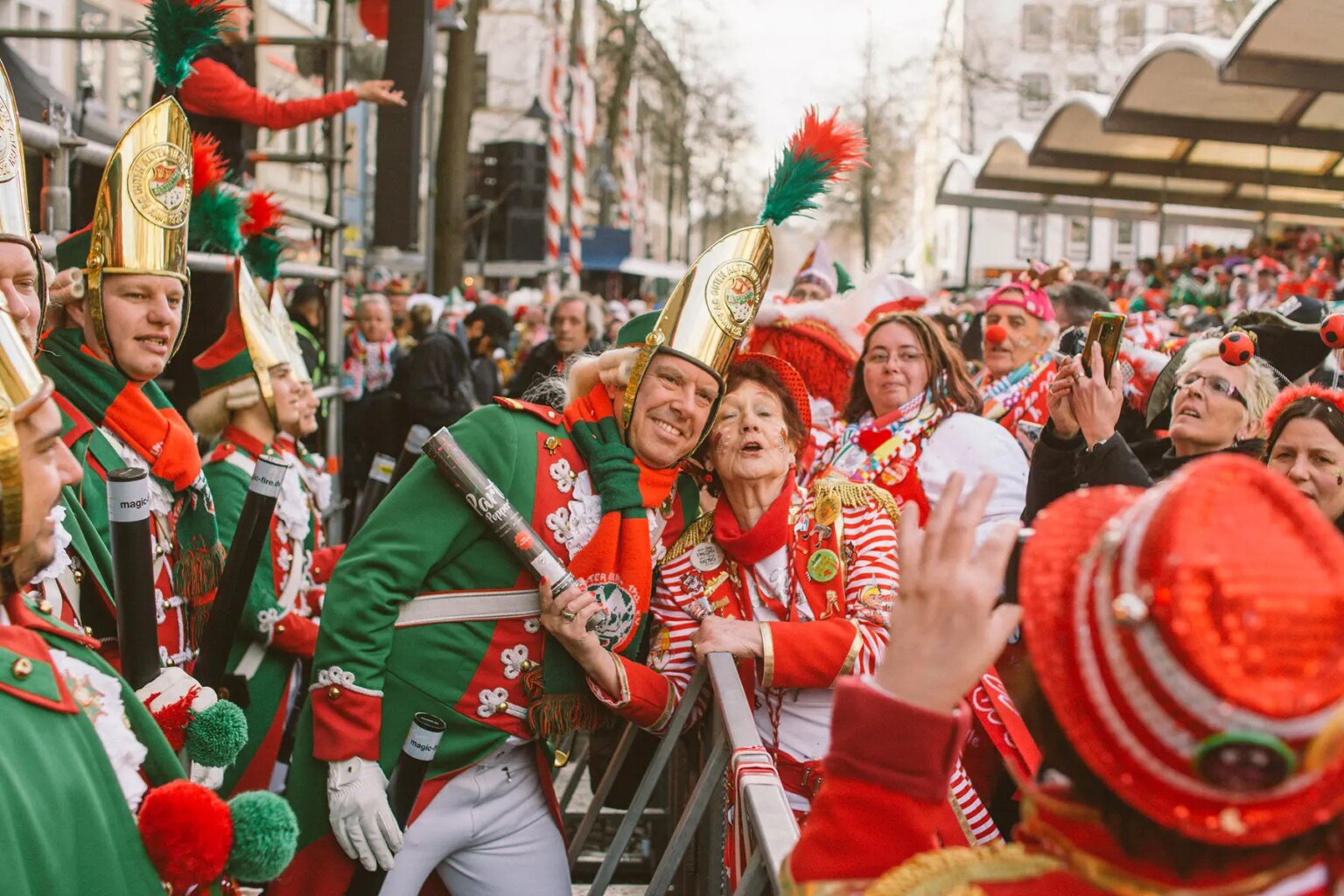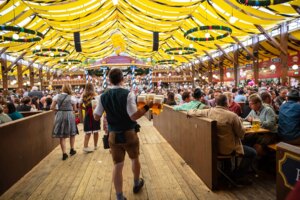Whether you call Germany home or are just visiting, going to festivals is a great way to experience the country’s vibrant culture. And with more than 10,000 German festivals to choose from throughout the year, you certainly have plenty of options. From prestigious music and film festivals to raucous Karneval and Oktoberfest parties, here are the best events to look out for. Get ready to mark your diaries!
World Nomads
Want to plan a trip to Germany? Before you set off, it's important to make sure you have the right travel insurance to cover you along the way. World Nomads offers simple and flexible travel insurance which you can buy at home or on the road. They also offer loads of advice to help you travel more confidently. So what are you waiting for, get a quote today!
Cultural festivals
Get ready to clank your glasses and dance the day and night away because Germany is famous for its epic beer festivals and street parties.
Oktoberfest, Munich
Held in the Bavarian capital of Munich every year in late September to early October, Oktoberfest is the world’s largest Volkfest; a beer festival with traveling funfair. More than six million people descend upon the city to drink copious amounts of German beer, ride numerous thrilling amusement rides, and dance to traditional Bavarian folk music.
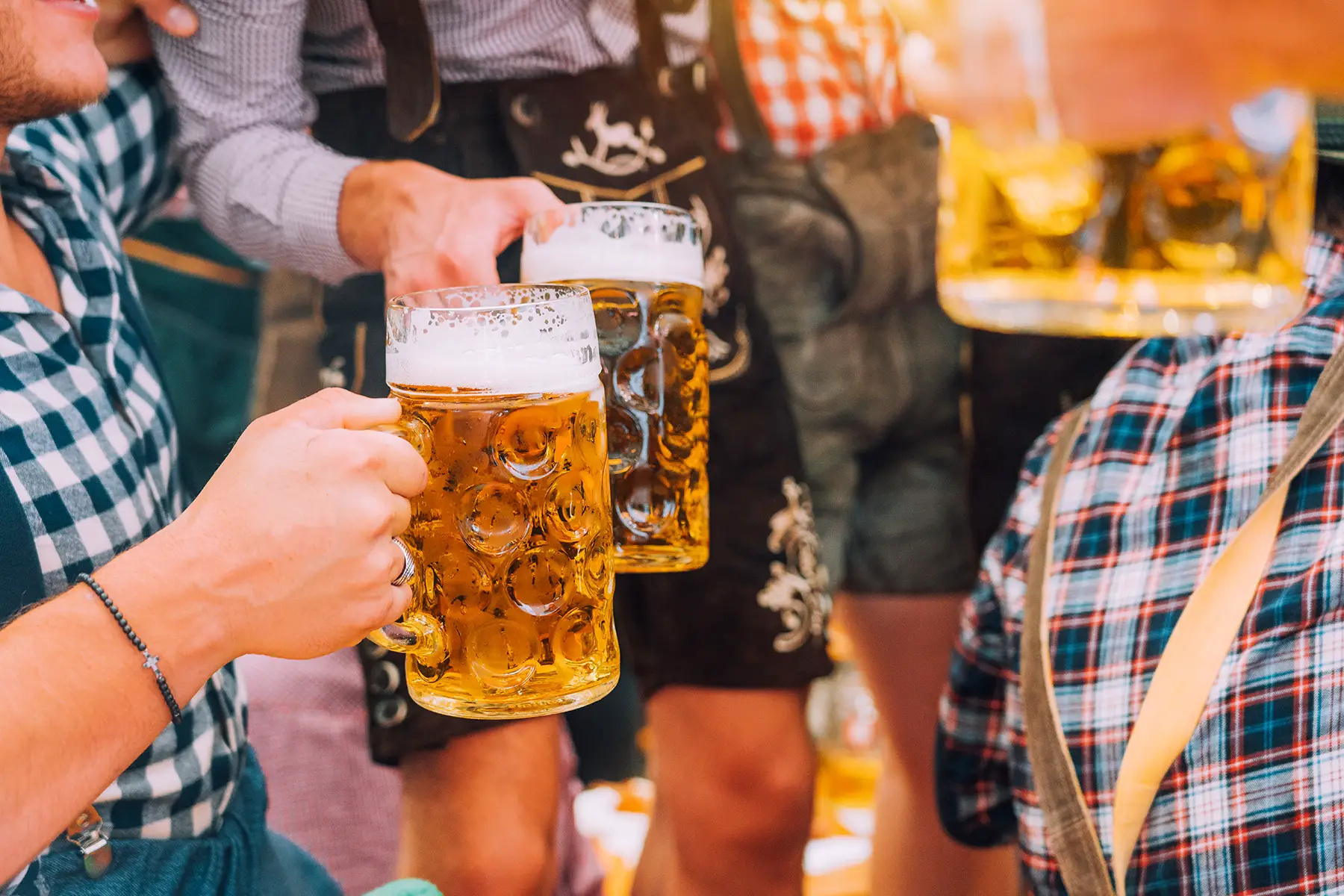
The 16 to 18-day-extravaganza also provides the perfect opportunity to savor all kinds of delicious German food; including Schnitzel (a thin, breaded cut of meat), Brezen (pretzels), and Würstl (classic Bavarian sausages). The raucous event was first held in Munich in 1810, but since then has escalated into a national and even global celebration. Indeed, many other cities around Germany and the world host their own Oktoberfest to honor the best of Bavarian culture. If there is one party you cannot miss, it is this.
Karneval, Cologne
Another highlight in the German calendar is Karneval, a 40-day party season that takes place between February and March. Also known as the fifth season, Karneval is a time when the typically orderly Germans let loose and party. During this time, parades, costume balls, and various festivities take place all across the country.
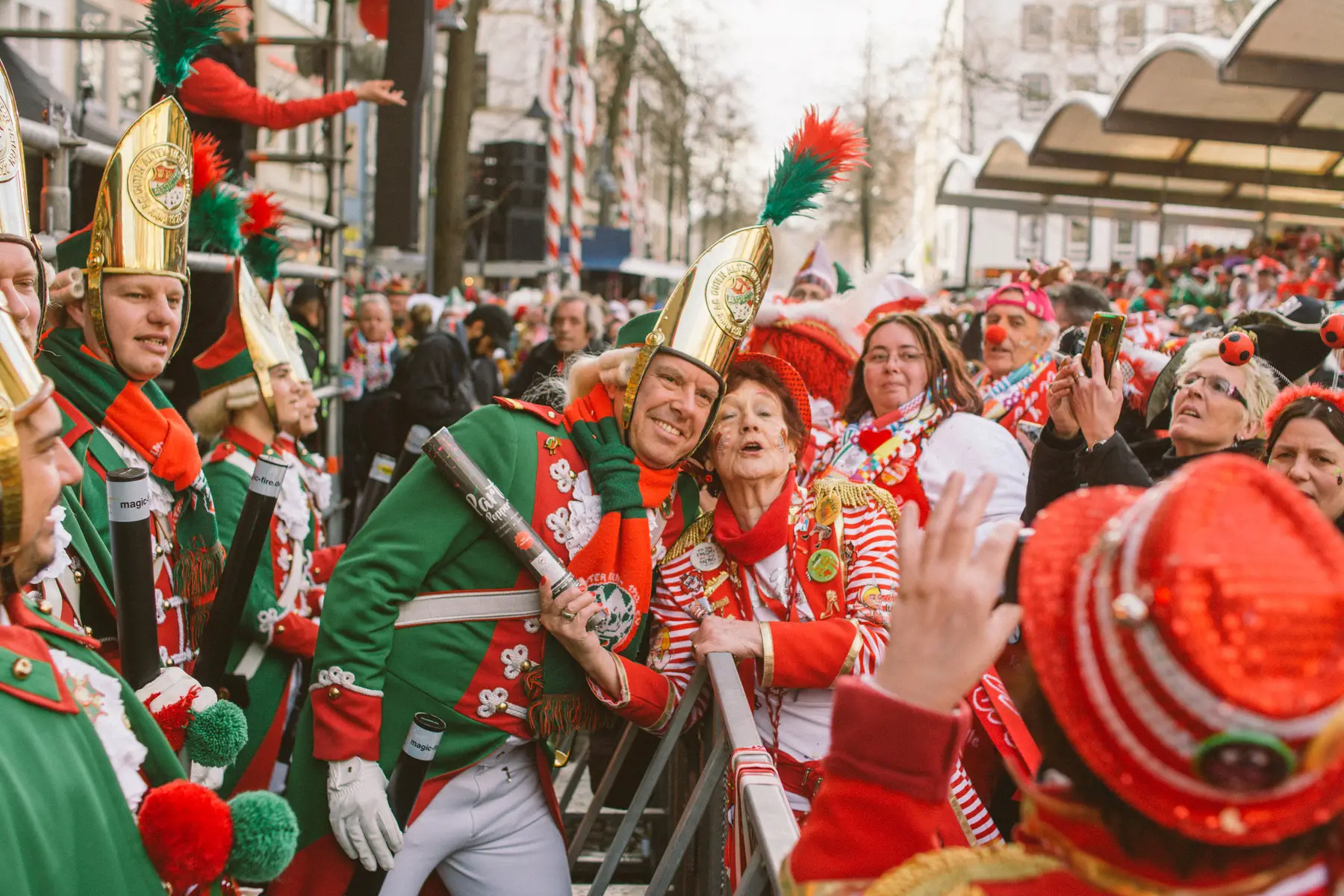
The largest and most well-known of these celebrations in Germany takes place in Cologne. Aptly named the crazy days, the period sees street parties pop up all across the city, colorful Corps troops gathering together, and a kilometer-long procession of Cologne’s Dreigestirn; men dressed up as a prince, a peasant, and a maiden. Various comedy shows and other performances also take place as part of the Alternative Carnival. The tradition dates back to medieval times when residents lived under strict rules. However, the Germans are certainly making up for it now.
International Africa Festival, Würtzburg
Taking place every year in Würtzburg, the International Africa Festival is one of the most colorful and energetic festivals in Germany. It is also the largest and oldest festival for African music and culture in Europe. Since it began in 1989, more than 7,000 musicians and artists from 56 countries of Africa and the Caribbean have performed to over 2.5 million visitors.
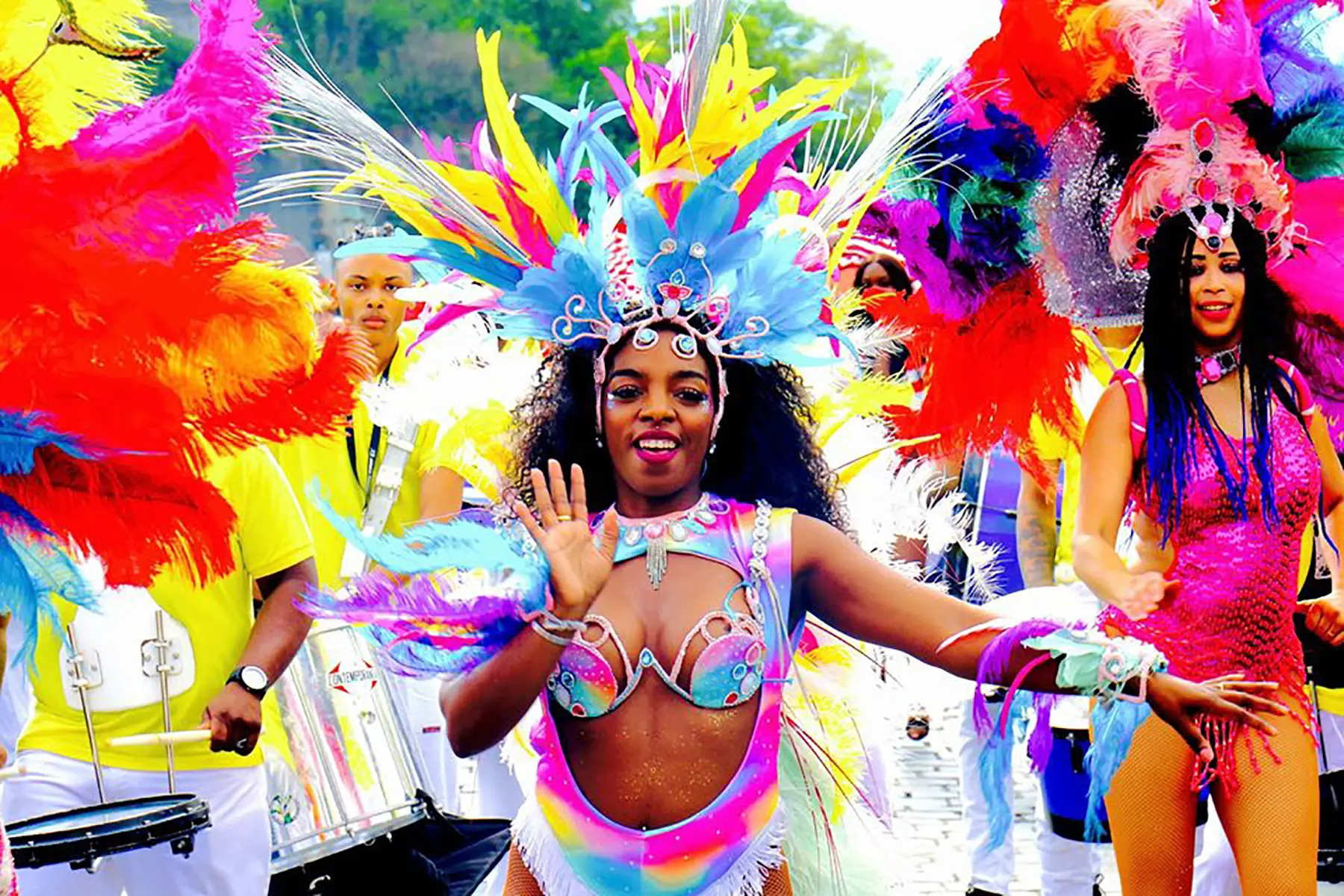
The jam-packed program of entertainment includes performances by acrobatic and music groups, breathtaking street parades, fashion shows, and children’s events. There is also a bustling bazaar selling all sorts of goodies from the continent. With so much on offer, it’s no surprise the festival has become a hugely popular family event.
Film festivals and book fairs
Whether you love catching all the latest international movies or getting lost in a good book, you’re sure to satisfy your tastes at these major events.
Berlinale: Berlin International Film Festival
Berlinale is the largest international film festival in the world and draws tens of thousands of visitors from around the globe each year. The prestigious event has been held annually since 1978 and showcases around 400 films; including big international movies, independent and art-house productions, German movies, and those aimed at younger audiences.
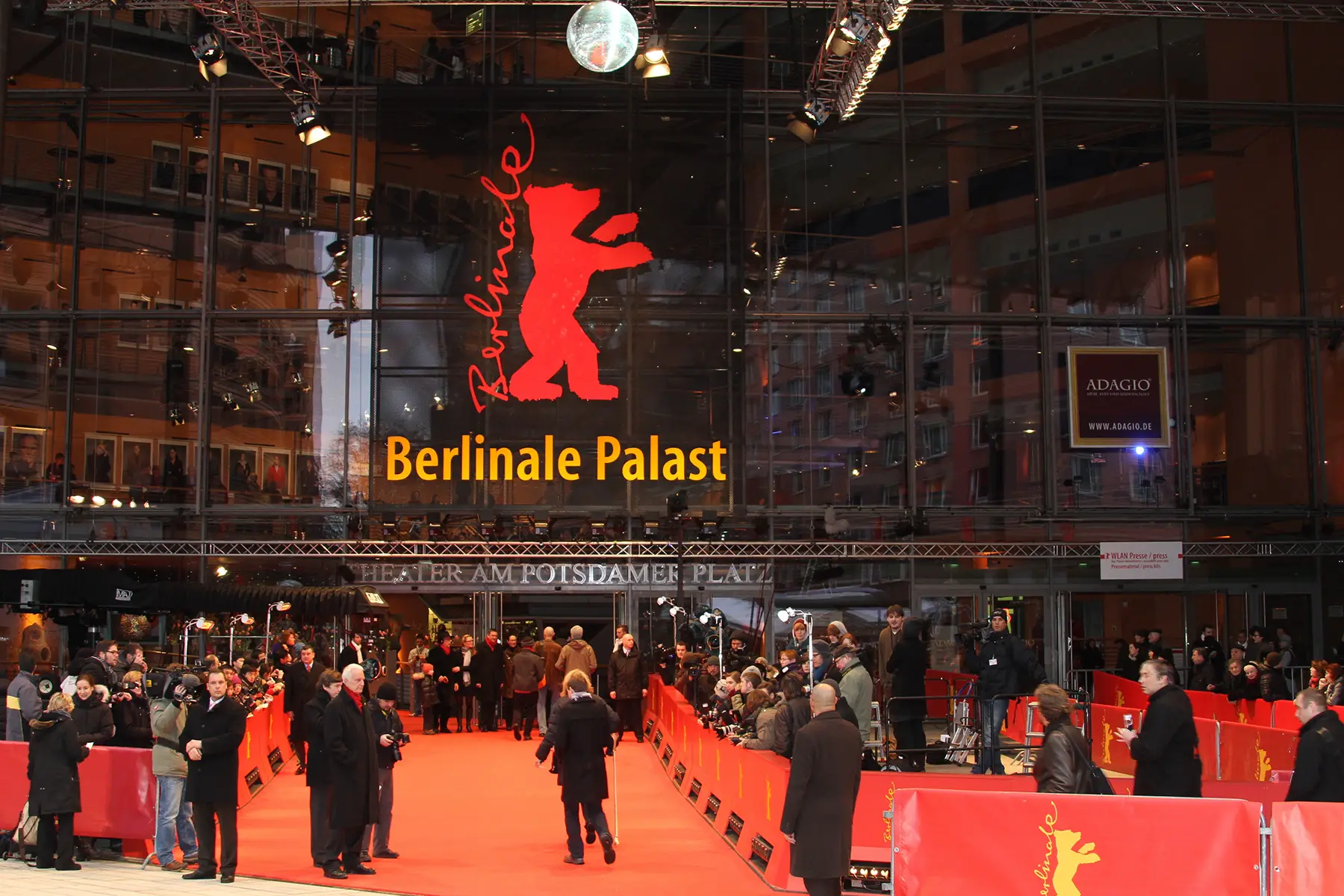
The red-carpet event attracts an impressive lineup of A-list celebrities. In the past, this has included the likes of Natalie Portman, Nicole Kidman, and Christian Bale. That said, it has the largest public attendance of any annual film festival; more than 300,000 tickets go on sale each year. These are sold for single screenings, allowing you to pick and choose what you watch. So, if you’re a major film buff, you might want to get in there quick.
Frankfurter Buchmesse
Bookworms will no doubt enjoy browsing the thousands of titles up for grabs at the Frankfurter Buchmesse. Held for five days at the Messe Frankfurt grounds in Frankfurt, the book fair dates back to the 15th century. This is when Johannes Gutenberg first invented movable type just a few kilometers away from Frankfurt.
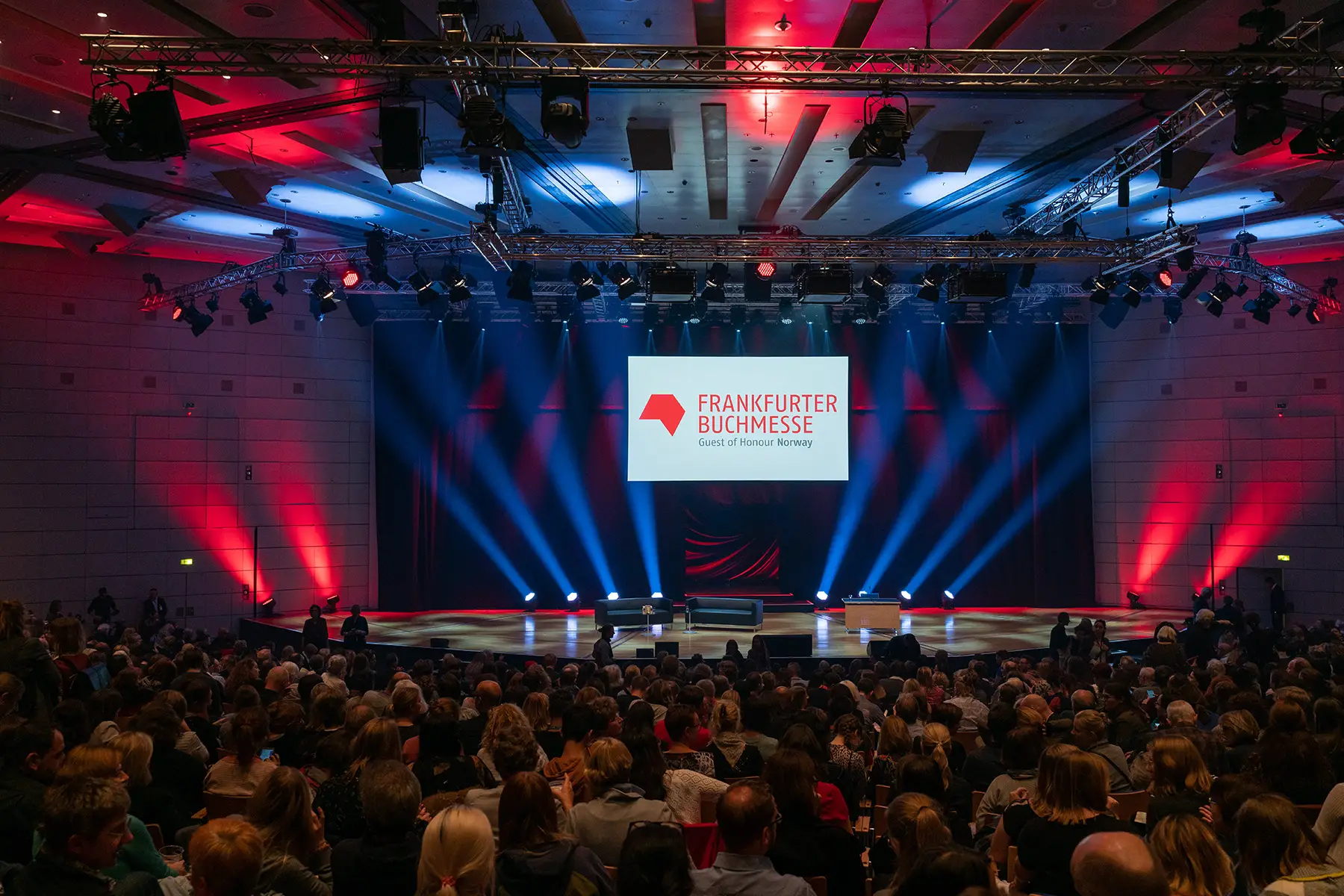
Today, it is the world’s largest trade fair for books and is considered to be the most important one for international deals and trading. While the first three days are restricted exclusively to professional visitors, the general public can attend on the weekend. In 2017, more than 7,300 exhibitors from over 100 countries took part, attracting more than 286,000 visitors to the fair.
Leipzig Book Fair
Leipzig Book Fair is the second-largest annual book fair in Germany, after the Frankfurt Book Fair, and takes place over four days at the Leipzig Trade Fairground. More than 2,600 events are held at 350 different venues during this time. Authors, readers, and publishing companies meet to collect information, engage in exchange, and discover what’s new in the literature scene. The fair is also the ideal platform for exploring current and future trends in the German-speaking and European markets.
Music festivals
From classical music and opera to jazz and Gothic rock, Germany has a thriving music scene to suit all tastes. Just check out these popular festivals.
Beethovenfest Bonn
For one month every autumn, the city of Bonn celebrates its most famous son – German composer and pianist, Beethoven. The hugely celebrated Beethovenfest presents around 70 concerts of international orchestras, ensembles, and soloists in more than 20 venues around the city. These include everything from castles and churches to the town hall and the Beethoven-Haus.
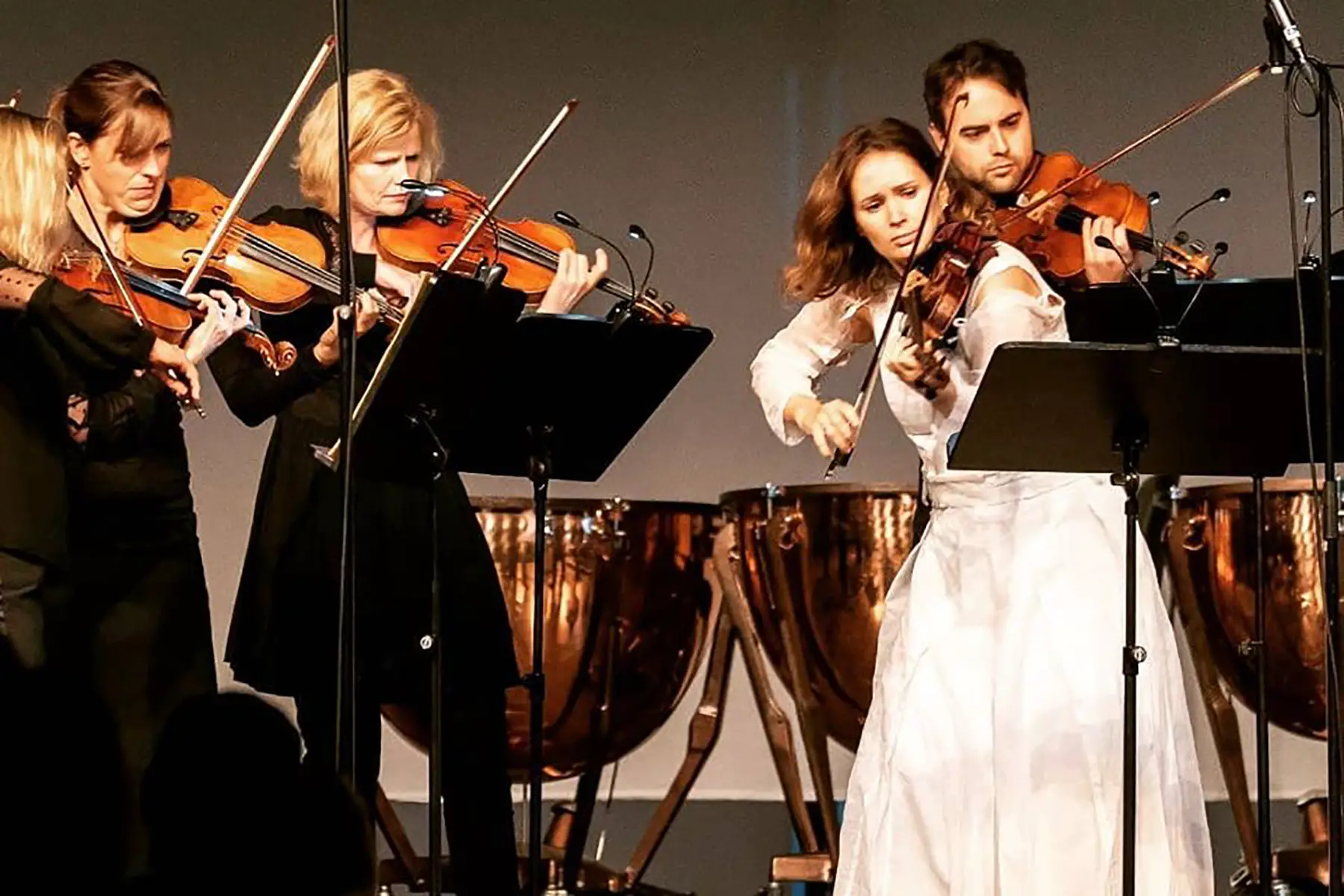
International and local visitors descend upon the city to enjoy a variety of performances by internationally-acclaimed musicians and orchestras. Although the spirit and talent of Beethoven remain the focus on the eponymous event, the organizers come up with a different theme each year that extends beyond his work.
Bayreuth Festival
The Bayreuth Festival is another month-long music festival held in honor of one of Germany’s greatest composers; this time, Richard Wagner. Held in the northern Bavarian town of Bayreuth, the festival has become a pilgrimage destination for Wagnerians and classical-music enthusiasts. They come from all over to enjoy watching various operas created by the composer.
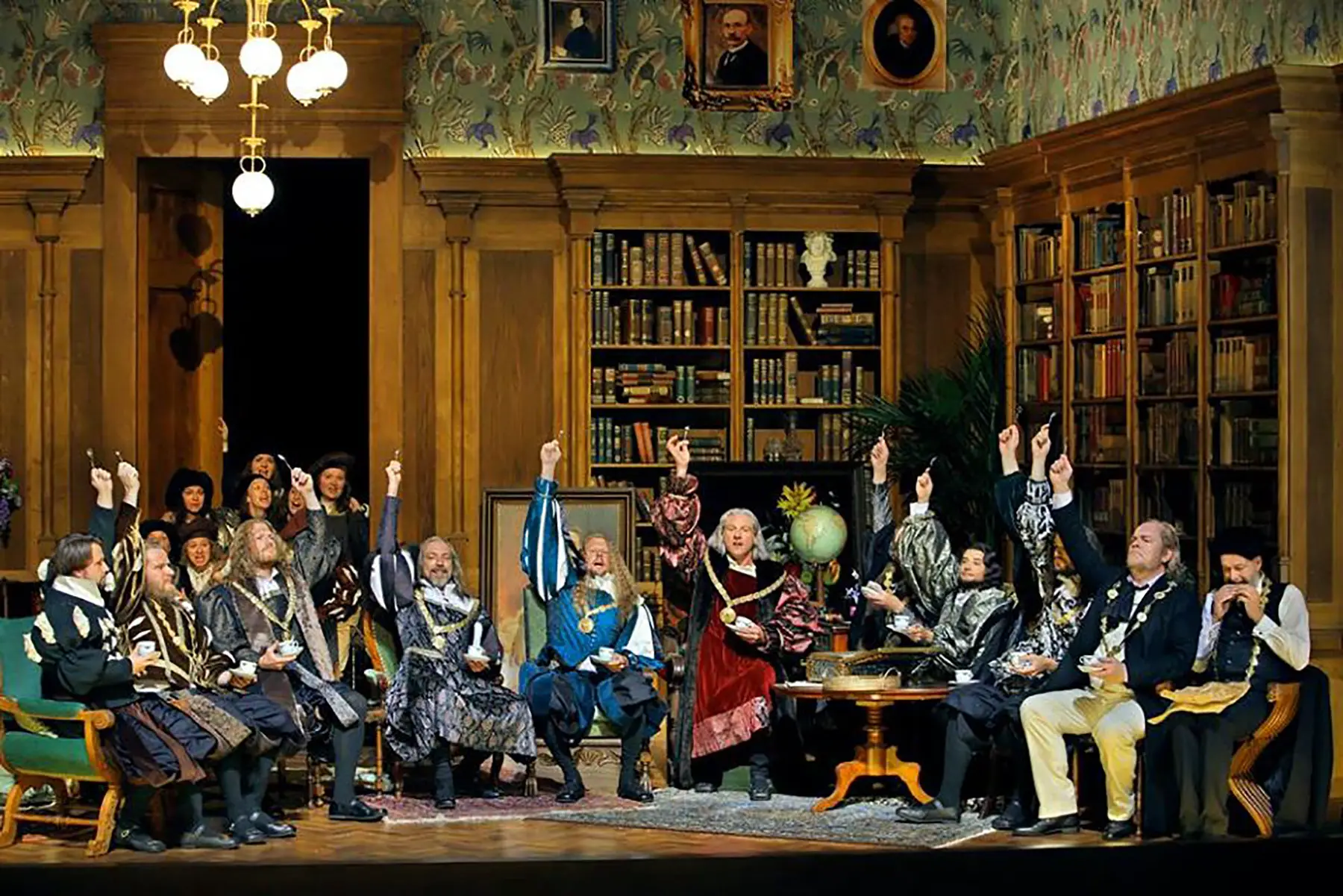
These performances take place in the Bayreuth Festspielhaus; a specially designed theatre that Wagner personally supervised the design and construction of in 1876.
Münchner Opernfestspiele: Munich Opera Festival
Another popular German festival dedicated to opera is the annual Munich Opera Festival (Münchner Opernfestspiele). Held every year from June to late July in the Bavarian capital, the festival showcases performances by the Bavarian State Opera. These also appear alongside premieres of new stage productions by the company.
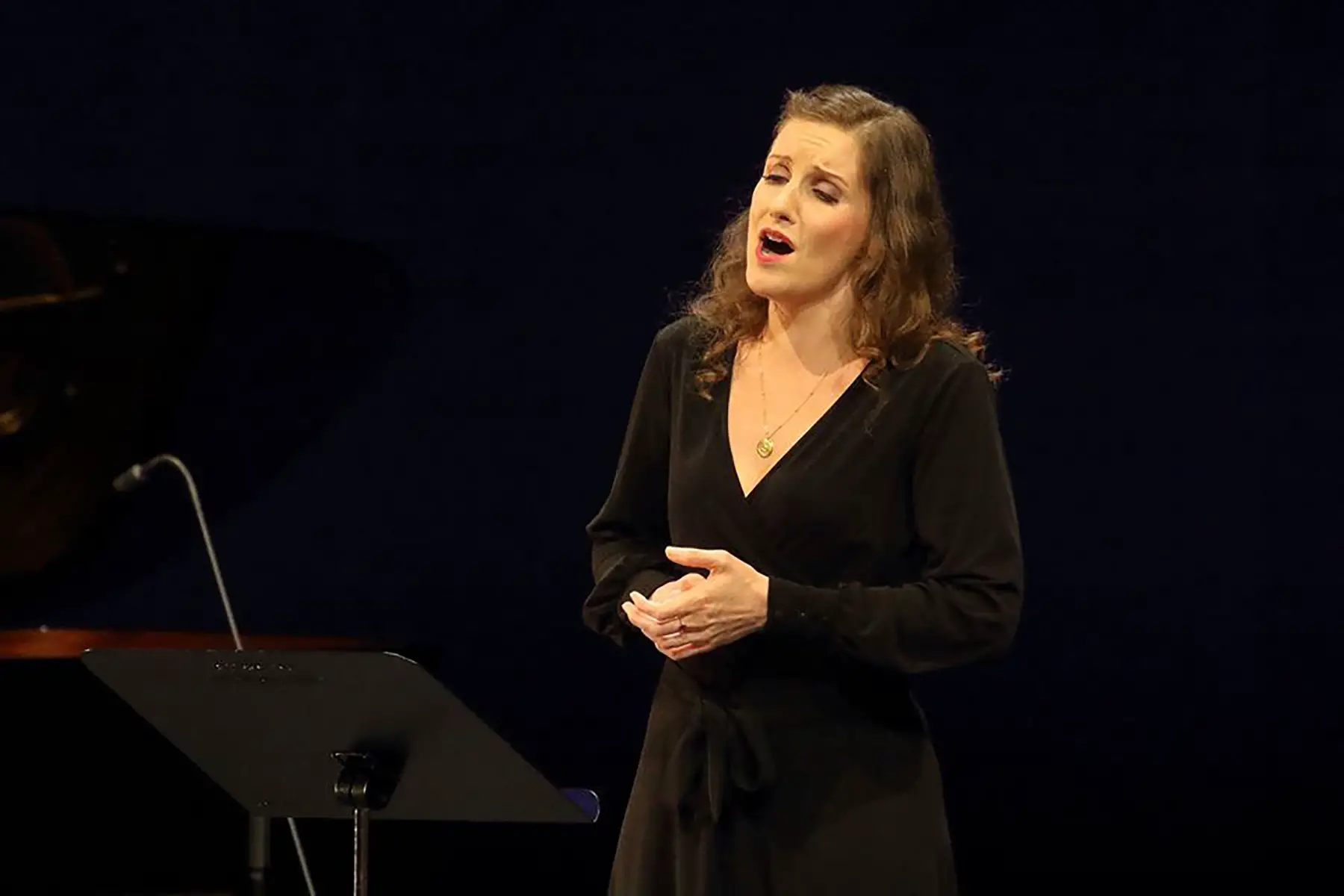
Concerts are held at a variety of prestigious venues including the Nationaltheater, the Prinzregententheater, the Cuvilliés-Theater, and the Allerheiligen-Hofkirche. A festival highlight is Opera for All; a live transmission of a full-length production from the theater to an outdoor audience seated in Max-Joseph-Platz.
Thüringer Bachwochen: Thuringia Bach Festival
Around 20,000 Bach fans from all over the world attend the Thüringer Bachwochen each year in Thuringia. Taking place during the Easter period, this is the largest music festival in Thuringia and features more than 60 concerts in the historic Bach sites throughout the state. These showcase the best of Baroque music and the works of Johann Sebastian Bach. Each year, the festival opens with a long night of house music. For one evening, more than a hundred public house concerts take place in private living rooms across the state.
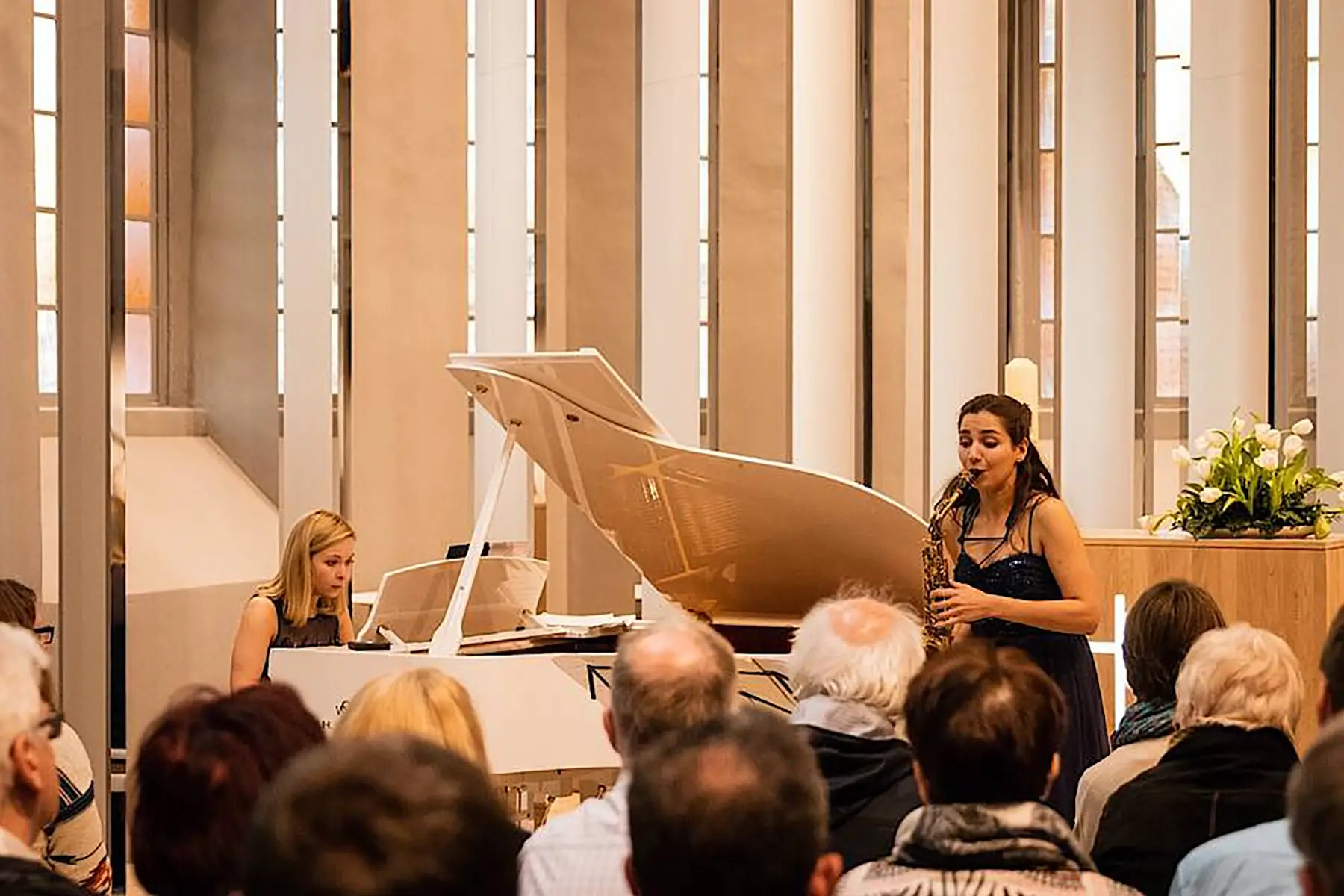
During the festival, crossover events are also planned in clubs, galleries, and factory halls. Amateurs and professionals also perform together around the region.
International Dixieland Festival, Dresden
Come May, many a saintly visitor goes marching into Dresden to check out the city’s thriving jazz music scene. Known particularly for its open-air events on the Elbe River, the Dixieland Festival has grown to become Germany’s oldest and Europe’s biggest old-time jazz festival. For eight days, around half a million jazz fans gather to enjoy live performances from over 350 artists.
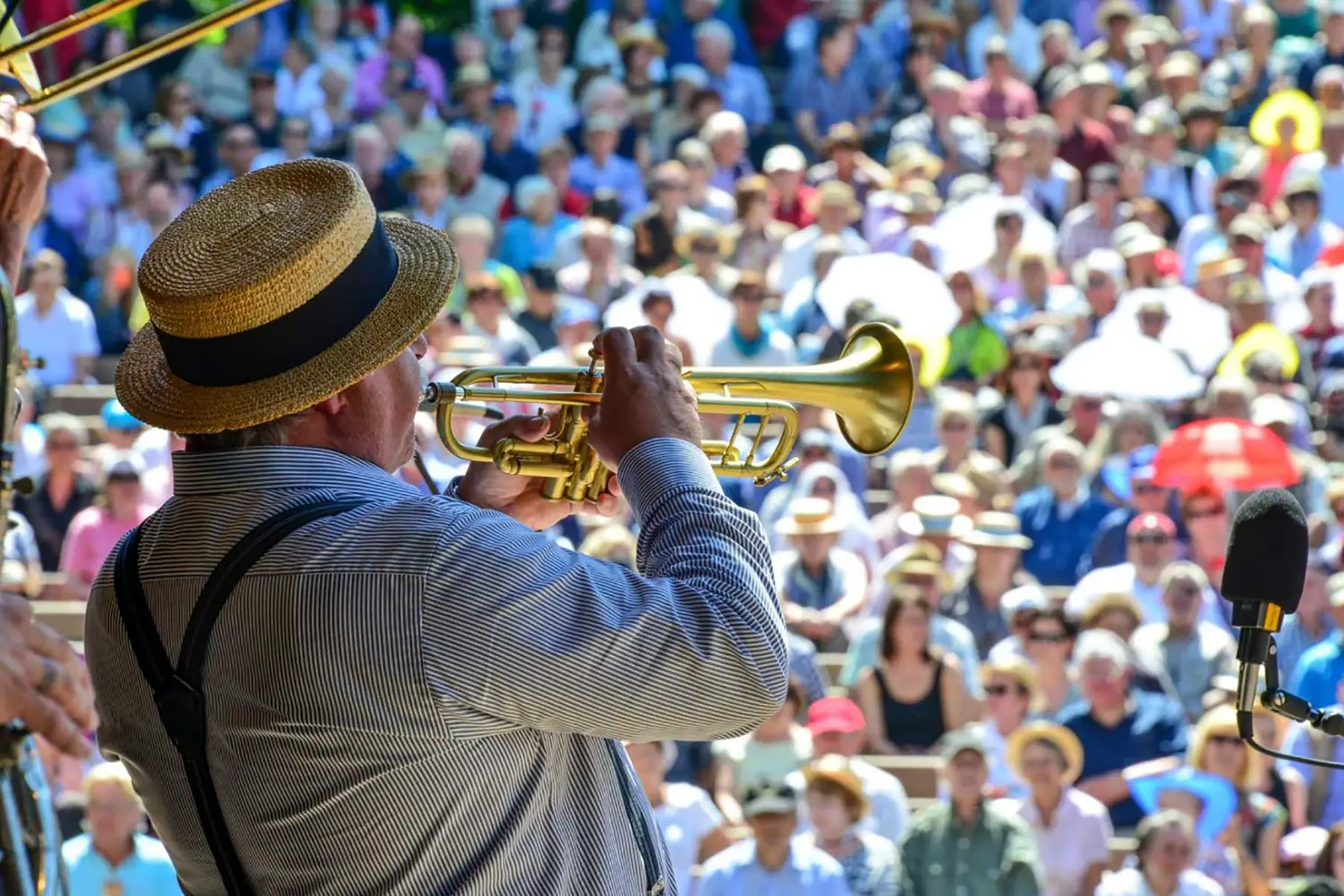
A festival highlight is the riverboat shuffle on the Elbe, the world’s oldest and largest fleet of paddle-steamers. This becomes a floating stage and festival-goers are invited to step aboard. The climax is the Dixieland parade through the city center, which culminates in a farewell jazz session. Numerous street performers also keep the crowds entertained.
Wave-Gotik-Treffen, Leipzig
Every May, around 20,000 goths, cybergoths, and steampunks attend the Wave-Gotik-Treffen festival in Leipzig. In addition to presenting more than 100 concerts, the four-day festival offers a diverse range of cultural events. These include everything from club parties, readings, art exhibitions, live role-playing games, and medieval markets.
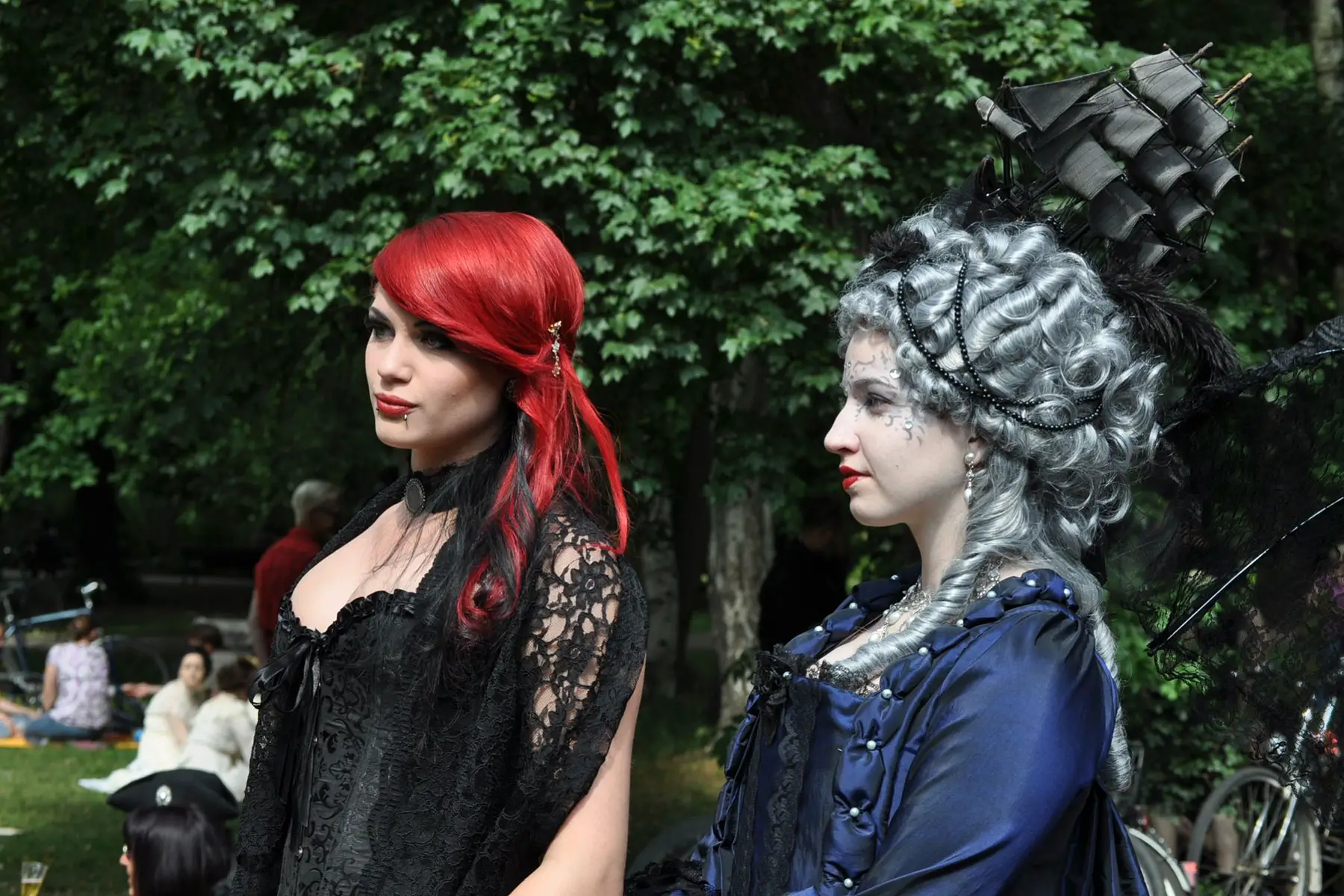
Interestingly, the event was considered so subversive in the days of the German Democratic Republic that it was banned. Nowadays, though, it has become the world’s largest festival for the Gothic scene.
Rock am Ring and Rock im Park
Rock n’ roll fans might want to mark their diaries for the largest music festival in Germany – Rock am Ring (Rock in the Ring) in Nürbergring and Rock im Park (Rock in the Park) in Nuremberg. Taking place simultaneously over three days, these rock festivals see the same artists from a range of music genres appear at each venue. They perform to a combined crowd of around 160,000, making this one of the largest music festivals in the world.
Historical events
Learning about times gone by has never been more fun than at these quirky historical festivals and events held throughout the year.
Festival Mediaval
History buffs will no doubt enjoy stepping back in time at the popular Festival Mediaval in Selb. Taking place every September, the historical three-day event is the largest medieval open-air music event in Europe. It brings together live performances of medieval music, fire shows, roaming performers, and theater groups.
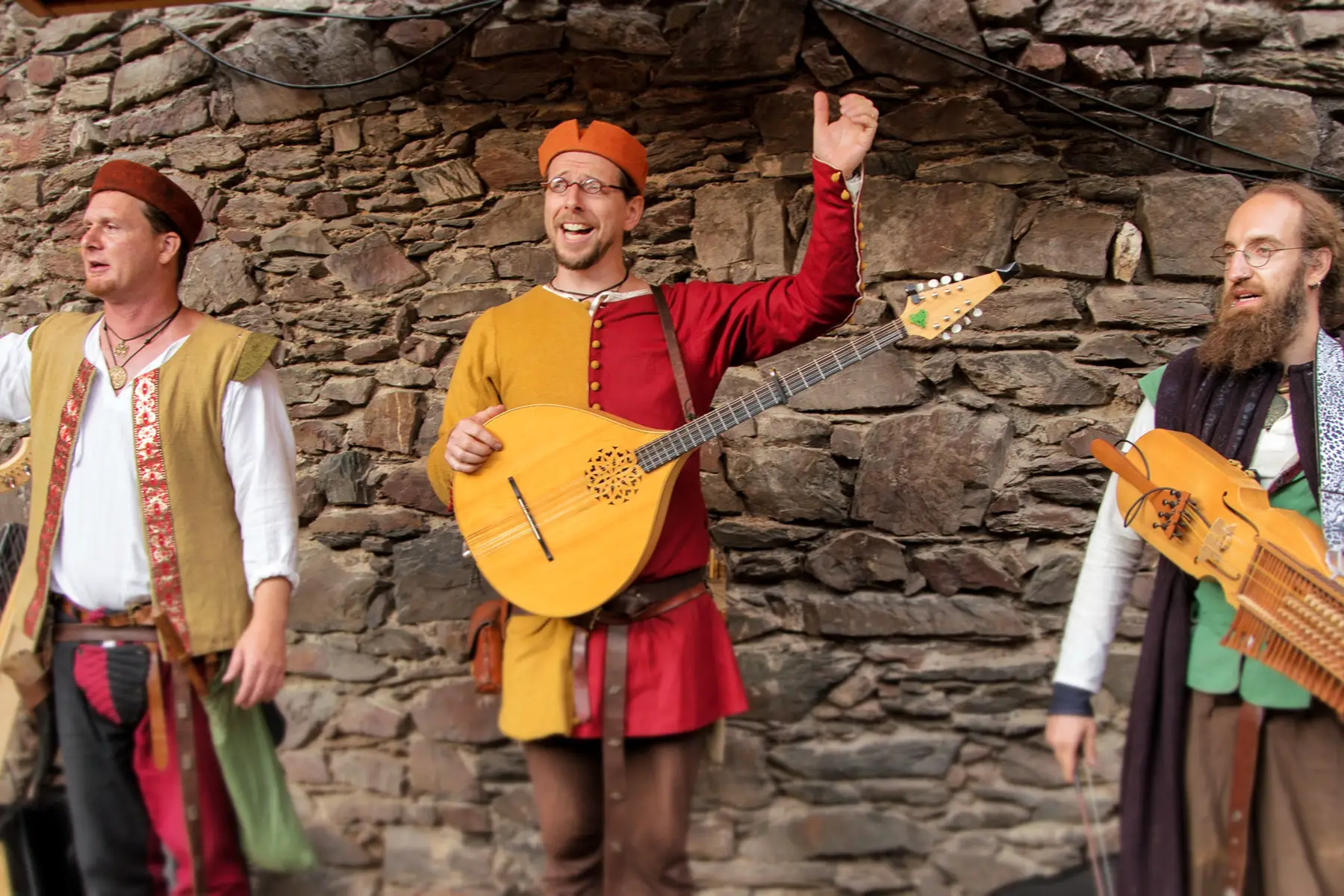
Visitors can also browse a medieval market and pick up authentic costumes and jewelry from the period. If you’ve ever had a hankering to try your hand at archery while munching on a chicken drumstick, then this festival is for you.
Long Night of the Museums, Berlin
Fancy sipping on cocktails among dinosaurs or dancing at castle balls? Then mark your diaries for the Long Night of Museums in Berlin. The highly-anticipated evening sees between 70 and 80 of the city’s museums open late for the public to explore. Among these are the world-famous houses on Museum Island and various art houses, technology museums, planetariums, and castles. Visitors are given an entrance pass which grants them access to all exhibits as well as complimentary public transport within the area. They can venture behind doors that are otherwise closed, meet interesting guests, and dance the night away to live music, and more. With snacks and drinks on offer in many places, and guided tours available in English, it’s no wonder this is one of the most popular German festivals.
Seasonal events
Germany is famous for its iconic Christmas markets that pop up across the country during the festive season. These are perfect for a quick getaway.
Weihnachtsmarkt: Christmas Markets
Germany’s beautiful Weihnachtsmarkts give you plenty of reasons to brave the cold. Whether you want to browse the numerous stalls selling handicrafts, sip on hot mulled wine (Glühwein) and roasted chestnuts, or ride a Ferris wheel, you can do it all. Germany’s festive markets have proven to be so popular that other countries have started copying the German-Austrian tradition. Some of the best German Christmas markets can be found in Berlin, Munich, Nuremberg, Lübeck, Münster, Stuttgart, and Heidelberg.
